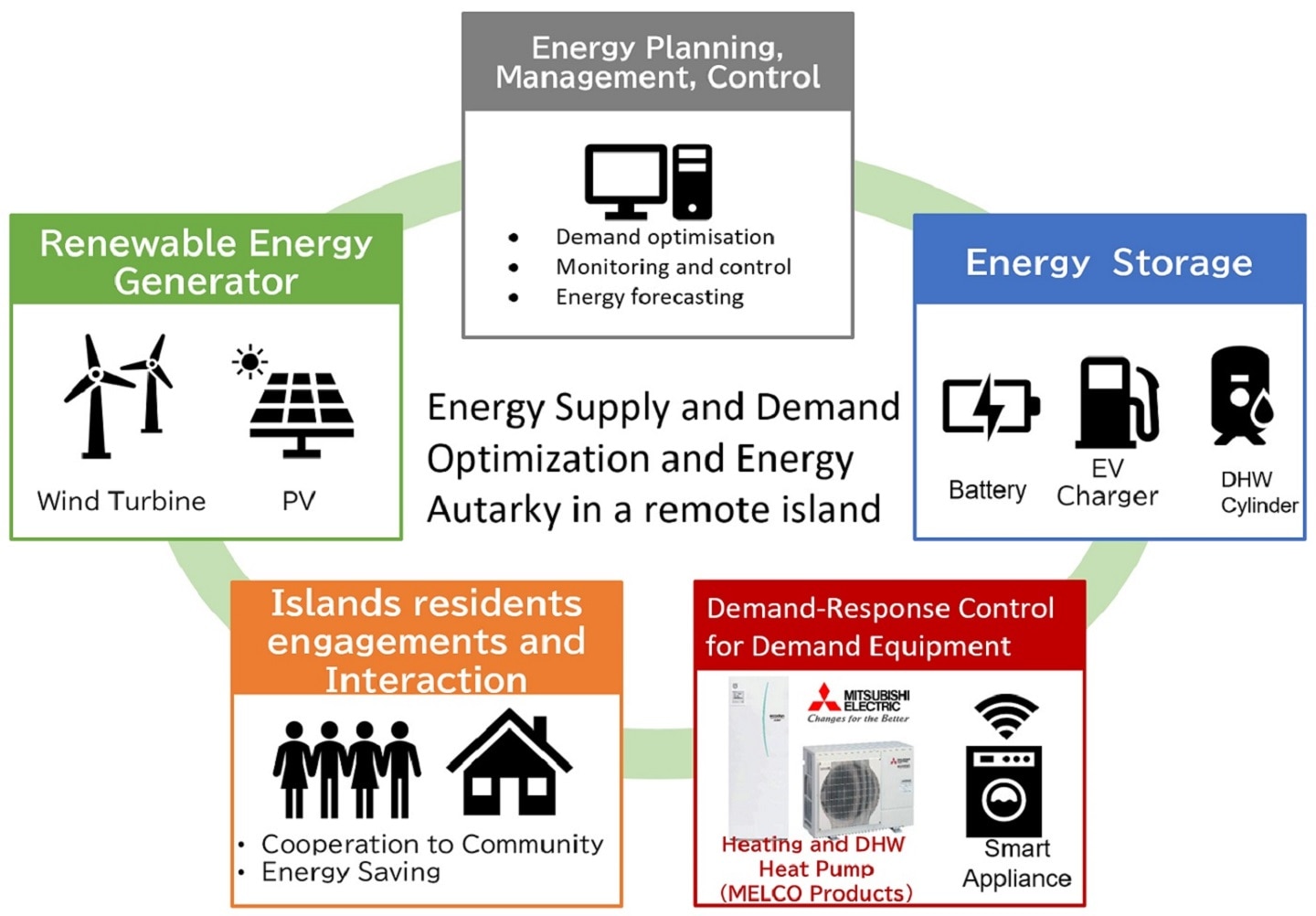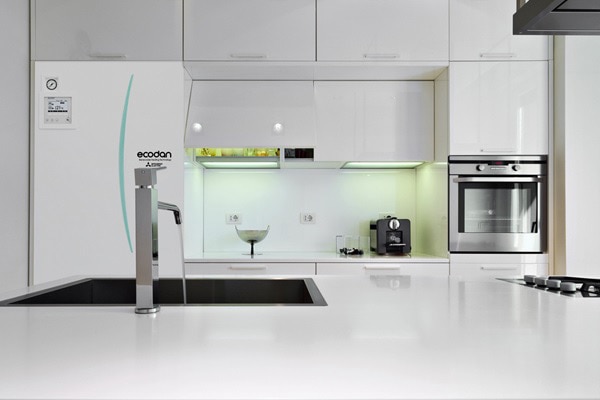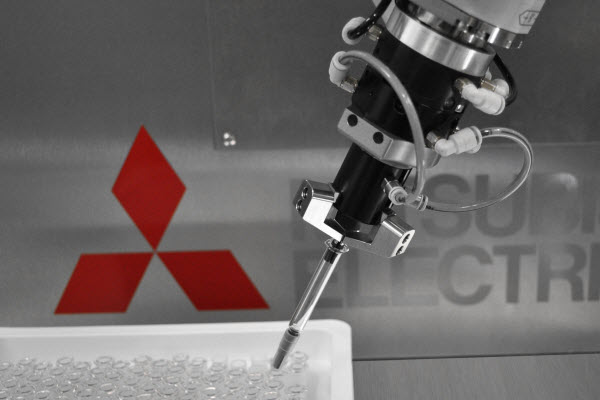News Releases
Demand-response Demonstration Experiment with Heat Pumps Begins under EU "REACT" ProjectUsing renewable energy to verify energy supply and demand optimization on remote islands and their effect on independence
FOR IMMEDIATE RELEASE No. 3607

REACT Project Overview
TOKYO, May 31, 2023 - Mitsubishi Electric Corporation (TOKYO: 6503) announced today that its European subsidiary Mitsubishi Electric R&D Centre Europe B.V. started a demonstration experiment on May 25 in the Irish Aran Islands to evaluate the effectiveness of heat pump control* for demand response** as part of the REACT project to demonstrate energy independence for remote islands. The project, which is co-funded by the European Union Horizon 2020 programme, will use heat pump systems deployed at the Aran Islands in Ireland, and San Pietro Island in Italy.
Renewable energy sources, such as photovoltaic (PV) panels and wind turbines, are important technologies for tackling climate change because they do not emit CO2 when generating electricity. Remote islands face geographical and structural challenges due to their high dependence on fossil fuels and energy supplies from the mainland. The REACT islands are expected to make maximum use of renewable energy to achieve an increased level of energy independence.
REACT is an Innovation Action project involving 22 partners including companies and academic institutions from 11 EU countries. The project will demonstrate a community-centric approach to energy management for remote islands using distributed renewable energy generation and storage technologies with demand-response to balance power supply and demand. The project aims to achieve energy savings of 10%, a 60% reduction in greenhouse gases, and a 50% increase in the use of renewable energy, compared to a baseline operation case before the application of the REACT solution.
The company will contribute to achieving carbon neutrality by participating in the project and using the results obtained from it.
This project has received funding from the European Union's Horizon 2020 research and innovation programme under Grant Agreement No. 824395.
- *A device that transfers heat between the outside air and the inside to provide heating, cooling or heat water with high energy efficiency
- **A mechanism to control electricity demand and adjust the balance between supply and demand by saving electricity and adjusting the power consumption of demand equipment in response to fluctuations in the amount of electricity supplied
Note
Note that the press releases are accurate at the time of publication but may be subject to change without notice.




